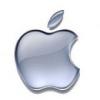-
Posts
10069 -
Joined
-
Last visited
-
Days Won
569
Content Type
Profiles
Articles, News and Tips
Forums
Everything posted by Hervé
-

Dell e6420 HD3000 and Mojave 10.14.2 new booting issue
Hervé replied to spidey123's topic in The Archive
Replace the platform support plist by the patched version and revert to MBP8,1 SMBIOS? You should always install your add-on kexts in /L/E rather than /S/L/E unless you absolutely have to. I take it that you've already added all necessary SNB graphics kexts from a previous macOS version, right? -
Erm... "Save as" option in IORegistryExplorer maybe... 'needs to be zipped before upload. We'll then see whether you use layout 0x16160002 or not and if you patches are effective or not. I'd also ask that you explain/detail how you applied the patches.
-
@flexrac, if DW1830 is not M.2, I don't know what M.2 is... @jean512, I have to re-install OS X/macOS on the Toshiba laptop that I have at home. Should be done over the week-end. I've already fitted the DW1820A in it.
-

Dell e6420 HD3000 and Mojave 10.14.2 new booting issue
Hervé replied to spidey123's topic in The Archive
Using Clover Configurator, modify your Clover config as follows: ACPI section: enable FixHeaders uncheck PluginType (you use patched AICPUPM + generated SSDT) -

Kext for Atheros AR946x/AR9485/AR9565 wireless cards
Hervé replied to black.dragon74's topic in Kernel Extensions
You can always try, knowing that support for these cards is poor and that Apple dropped support for Atheros cards in Mojave so the patched Atheros40 kext is required more than ever. -
If you look at layout 0x16160002 in the BDW framebuffer kext, you'll see something like: 02001616 01030303 00002002 00005001 00000060 6C050000 6C050000 00000000 00000000 00000000 00000800 02000000 30020000 01050900 00040000 07050000 02040A00 00040000 07050000 FF000000 01000000 40000000 024B0000 05050600 02000000 04000000 80DF1710 00000000 78050000 D2050000 40060000 00000000 00000000 C8000000 i.e. a layout that supports the following 3 x output ports: 00000800 02000000 30020000 // FB@0, port #0, LVDS (built-in LCD) 01050900 00040000 07050000 // FB@1, port #5, DP 02040A00 00040000 07050000 // FB@2, port #6, DP If you want support for DVI output alongside DP output, you have to patch one of the above output ports for it. Since you already got DP out of port #6, you could expect the patch to be: \/\/ \/ Find: 01050900 00040000 07050000 Replace: 03060900 00020000 07050000 /\/\ /\ ` Try that, knowing that you may have to experiment according to those principles I detailed in my guide for Haswell/4th gen graphics.
-
What you need to do is identify which framebuffer port relates to each docking station physical display output (DP, DVI, etc.). I expect that you'll then need to patch your specific BDW framebuffer layout, at least for DVI, in a similar fashion as I detailed for HD4600 in the R&D->Graphics forum subsection.
-

dell latitude e6420 OSX Sierra (10.12.6). Sound problems
Hervé replied to Ami's topic in The Archive
Install CodecCommander kext to /L/E, repair permissions and rebuild your cache. -
Please consult our FAQ or non-exhaustive wireless card inventory posted in the R&D->Wireless forum sub-section where you'll find all your answers.
-
I run with v1.90.1 and it works fine, mostly. It's erratic but my battery is on its way out so I know the battery manager cannot be expected to be reliable.
-
On 2nd thoughts... it's probably not for you.
-
Don't forget the AGPM tuning for your nVidia GPU if it's not already done.
-
You may try a different version of ACPIBatteryManager kext, like v1.70.2.
-
There are several things to adjust in terms of both kexts and Clover config. Kexts: You wish to inject FakePCIID_XHCMux kext but you forgot to include the FakePCIID kext that's required as main base. That may explain your USB issues. I recommend you familiarise yourself with Rehabman's FakePCIID documentation. Clover config: ACPI section You have a generated power management SSDT for your CPU, yet tried configured Clover with PluginType (and incorrectly so. Remove those Clover parameters (PluginType, APSN, APLF). You have disabled the renaming of USB devices EHCx to EH0x. You might as well remove them since, indeed, they're not needed on this laptop, at least with MPB9,2 SMBIOS Boot section You don't need to set kext-dev-mode=1, nv_disable=1 or slide=0. Remove those settings. Latest versions of Lilu and AppleALC kexts support Mojave so you can also remove those -lilubeta and -alcbeta options as long as you inject latest versions of the kexts through your Clover kexts folder. Devices section You may want to enable High Current for your USB ports (there are USB3.0 ports on the E6230 and one of them is PowerShare capable) Disable Drivers section You can remove the disabling of VBoxHfs Graphics section All Ok there. Remove Inject Intel + Capri layout 0x01660003 if you ever inject WhateverGreen kext Kernel and kext patches section KernelPm is not applicable to Ivy Bridge. It's for Haswell and later platforms. Remove that. Your IOGraphicsFamily patch is incorrect. It's the patch that applied to older OS X versions. Since High Sierra (or was it Sierra?) the patch differs to replacing 0100007522 by 010000EB22 In the same spirit the USB port list patch of your config no longer applies to Mojave. You can remove it. SMBIOS I would change SMBIOS to MacBookPro9,2 Once that is done generate a new Serial Number + SmUUID number System Parameters Once you've changed SMBIOS, generate a new Custom UUID Rt Variables You may then generate a new ROM from SMBIOS and copy the listed MLB value to the MLB field. Try this one: config.plist.zip
-
1.2GHz is the normal idle speed (=Low Frequency Mode) unless you have a CPU power management problem. You may check your own CPU's LFM/HFM speeds in Intel's Ivy Bridage datasheet, p34-35. https://www.intel.com/content/www/us/en/processors/core/3rd-gen-core-family-mobile-vol-1-datasheet.html Only the low-voltage "U" models have LFM @800MHz.
-
1) it's perfectly normal. A clock cannot be expected to run exactly at 100MHz so there will always be a tiny drift. This being said, if you want your reported speeds to be sport on, set up bus speed to 100MHz in your Clover config. I advise you use Clover Configurator to that effect è-> CPU section. 2) You ain't exactly clear, and I'm having trouble understanding what your issues are here... I've been running MBP9,2 SMBIOS from the onset, whether with my previous i5-3340M or my current i7-3540M and can't report any problem with that. Will look into your posted debug info later but it defintiely seems your system is not entirely properly setup.
-
https://forums.macrumors.com/threads/why-is-vdcassistant-running.1275792/
-
This webcam issue will be related to USB ports being erratic after sleep & wake. You probably have some fine-tuning to do on that USB front.
-
Re: wifi, Intel cards are not supported and Mojave dropped support for Atheros cards; they're still usable if you install the Atheros kext from, say, High Sierra 10.13.6 but the AR9462 is poorly supported under OS X/macOS so you're best replacing your Intel card by a fully supported model. We have a non-exhaustive inventory in the dedicated R&D->wireless forum section,.
-
If you run with Clover, update directly to High Sierra through the downloaded app; then update your kexts if required. You'll have to change your SMBIOS from MBP5,2 to MBP7,1.
-
Enoch, like Chameleon, does indeed create an /Extra folder on the destination disk if it does not exist. If it already does, it may just update it if required. Nothing new and nothing different here. But it does not matter since you'll then overwrite this /Extra folder with the bootpack I posted.
-
I wrote a step-by-step guide so if you follow it to the letter, you normaly cannot fail.
-
Post #1 clearly shows that you use good old AT commands (old Modem control facility) to enable the module's modem port. This is done through direct access to the WWAN module, i.e. through a serial connection to the USB port using tools such as Terminal, Putty or Screen (which you just call from Terminal) as illustrated on post #1. List your modem device(s) with line command: ls /dev/tty You can Google for "AT commands" if you've never encountered them. It's kind of old stuff and only old farts and network/telecom people tend to know about them these days... To obtain EM7305 AT commands complete references, Google for "EM7305 AT commands"... Going back to the screenshot of post #1, you can see several such AT commands: 1) ati -> returns information about the device 2) at!udusbcomp? -> queries the modem about current/active mode 3) at!udusbcomp=? -> queries the modem about the list various values that can be used to assign its mode So, if you wanted to set USBCOMP to 6, you would then issue the command at!udusbcomp=6. When you 1st connect to the modem, you can check it responds properly by issuing the basic at command. Modem should reply by an Ok message.
-
Without the external connector shell, I'd be tempted to say the card is goosed. Must have taken some serious yanking to totally destroy in such a way... However if the card can still operate without the external connector, no other way but use some form of sticky tape or gum to keep the antenna wires attached to the card.


